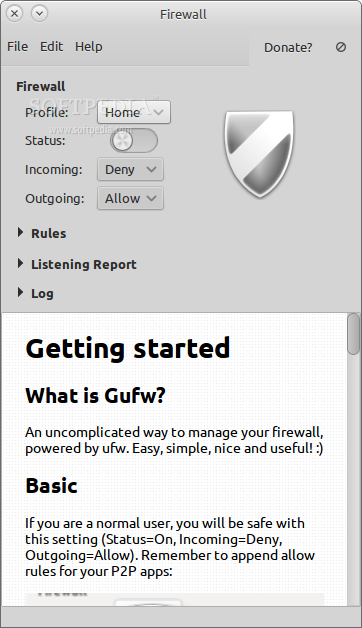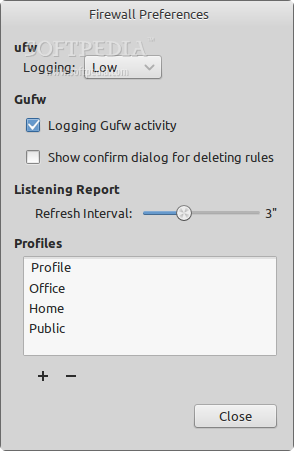Description
Gufw FOR LINUX - Free Download
Product Description:
Gufw for Linux is an open-source application that offers users a graphical user interface (GUI) for managing the ufw (Uncomplicated Firewall) iptables command-line interface in Linux. This tool allows users to efficiently handle the Linux kernel's packet filtering system with ease.
Key Features:
- Ability to use profiles
- Quick enable or disable firewall
- Easy setup of incoming and outgoing rules
- View applications listening on ports
- Add or remove rules effortlessly
Additional Features:
- Switch between predefined profiles (Home, Office, Public)
- Real-time log view
- Set rules for incoming and outgoing traffic (Allow, Deny, Reject)
- Create rules from listening report
- Support for various applications, games, and protocols
Technical Specifications:
- Written in Python programming language
- Uses GTK+ GUI toolkit and Glade for the graphical interface
- Compatible with GNOME and Xfce desktop environments
- Available as a source archive for advanced users
- Installable from default software channels for novices
Important Information:
As Gufw is an interface for the ufw program, which further interfaces with iptables firewall, root (administrator privileges) access is required each time the application is launched.
User Reviews for Gufw FOR LINUX 7
-
for Gufw FOR LINUX
Gufw FOR LINUX provides a user-friendly interface for managing firewall settings. Easy to enable/disable firewall and set rules. Recommended for Linux users.
-
for Gufw FOR LINUX
Gufw is fantastic! It's so user-friendly and makes managing my firewall a breeze. Highly recommended!
-
for Gufw FOR LINUX
Absolutely love Gufw! The GUI is intuitive, and the ability to quickly switch profiles is a game changer.
-
for Gufw FOR LINUX
A superb tool for Linux users! Gufw simplifies firewall management without compromising security.
-
for Gufw FOR LINUX
Gufw has transformed how I manage my network security. The features are powerful yet easy to use!
-
for Gufw FOR LINUX
Five stars for Gufw! It's efficient, reliable, and perfect for both beginners and advanced users alike.
-
for Gufw FOR LINUX
Great app! Gufw makes setting up firewall rules straightforward. I can't imagine using anything else.


